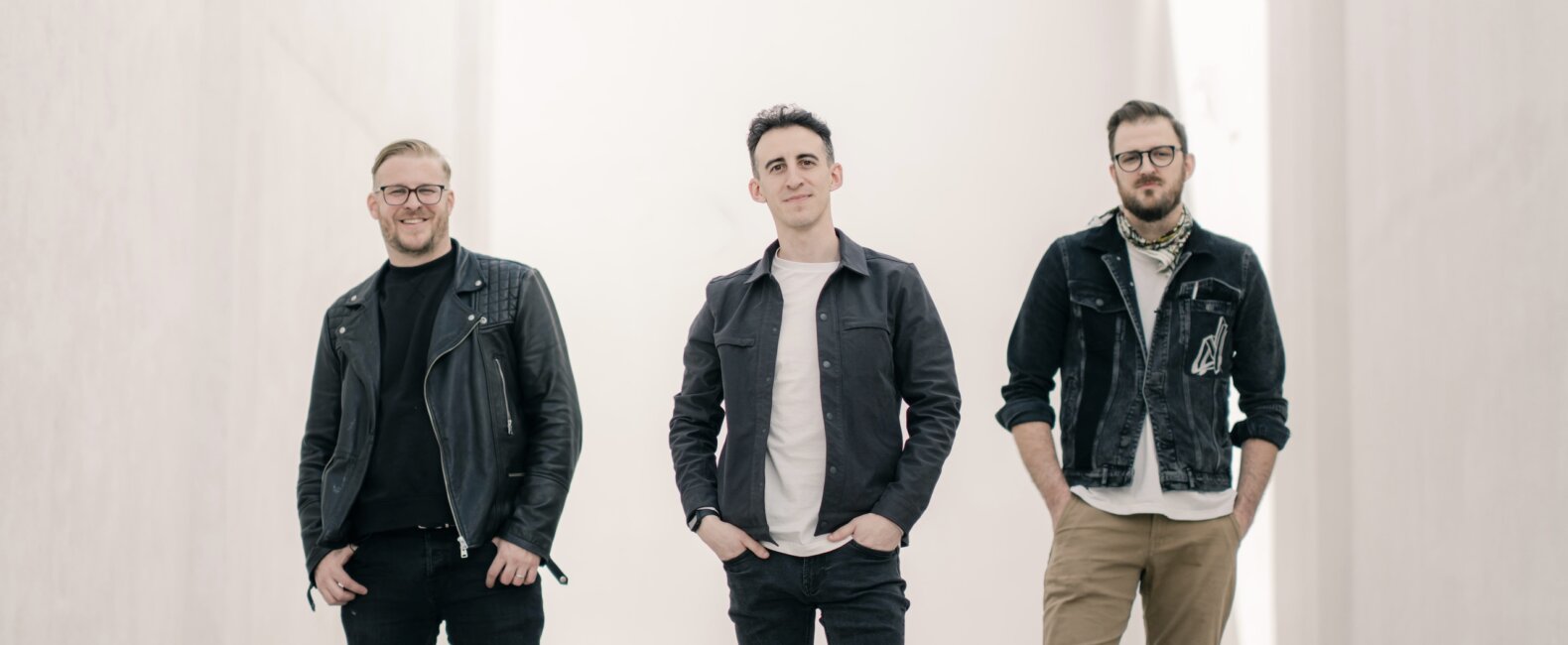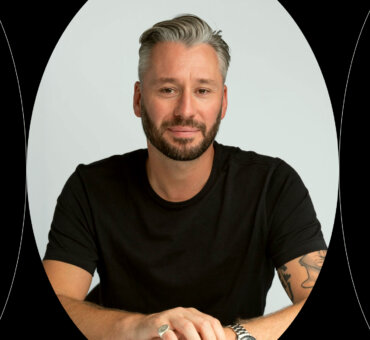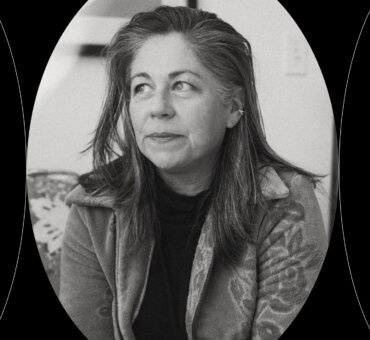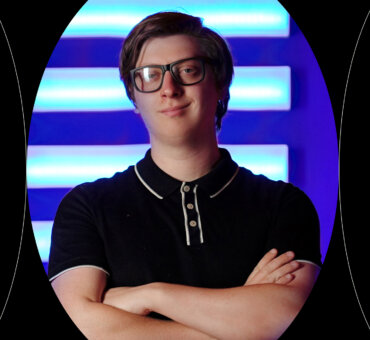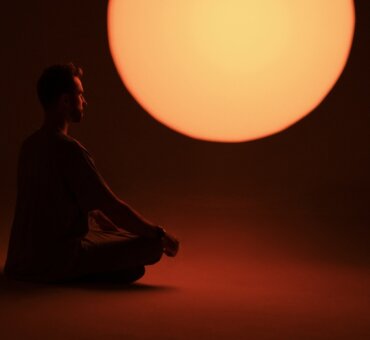Whether you’re an aspiring wedding filmmaker or a seasoned pro, Wedding Film School’s YouTube channel is for you. Led by Bobby Burns, Jason McCutchen, and Jared Haskel, Wedding Film School educates and connects wedding filmmakers from around the world, offering helpful tutorials, one-on-one coaching, and more. Read their interview below to hear more about what sparked their interest in storytelling, their storytelling essentials, and why they utilize Musicbed for the right music for their stunning films.
Musicbed: What sparked your passion for filmmaking and storytelling?
Bobby Burns: For me, I’ve always considered myself a creative person, but I never had the outlet for that creativity. I come from a family of artists who fall more in line with fine art, and I was terrible at fine art (I still am). Finding a creative outlet through filmmaking and storytelling was my way to express myself, and fit into what I always assumed I should be doing in some way, shape, or form. More specifically, figuring that out through a mentorship I did in high school, which was some of my earliest experiences of filming weddings, editing things together, and trying to figure out a story no matter what the content was. I would assist and watch over the editor’s shoulder as he pieced together stories. It was interesting seeing things come together. We would go somewhere to shoot, and he would ask me to just create something from that. Finding a story when there wasn’t a story was a great challenge that I’ve always viewed as a puzzle. And to this day, I’ll reference it as such. It can be time-consuming, stressful, and even make you want to pull your hair out, but it’s rewarding when you piece together a story that you see in your head.
Jared Haskel: My love of filmmaking probably started as a teenager with a deep love of video games. The prospect of creating different worlds was always very appealing to me. Growing up, I was the weird kid running through the woods with a stick/sword/lightsaber playing alone. I was handed a video camera in high school which allowed me to share some of that world with others which made becoming a professional filmmaker very appealing.
Jason McCutchen: I’ve always had a love for storytelling. Whether I was playing in bands, working in graphic design, or remaking Monty Python episodes as a high schooler. Wedding filmmaking was just where I landed! I just love that we as storytellers can go beyond recounting something that happened: we enhance it and almost create it as an idealized version of that memory. It’s the magic of filmmaking!
What keeps you motivated or inspired?
Bobby: I’m somebody who wants to be the best at what they do, and that’s not only as a parent in filmmaking or teaching others about filmmaking, it is something that exists in most facets of my life. That accounts for some amount of motivation for me. With everyboydy, there is a natural level of motivation that you have or don’t have and you fall somewhere on that spectrum. One of the most motivating things for me is engaging with other creators. A lot of time for me, that is other creatives in a similar industry (wedding or commercial filmmakers), but it doesn’t have to be. it can be artists of all kinds, writers, or people who are just entrepreneurs. Parallels can be drawn between a lot of career paths and life choices, and being able to pull from those experiences and communicating with people in another walk of life is important to keeping me motivated and encouraging me to try new things. Ultimately, speaking to the creative side, doing the same thing over and over can be incredibly boring to me. Bouncing ideas off of others, in creative or non-creative fields, allows me to approach my work from different viewpoints, and hopefully put different spins on my work. You can also find creative inspiration in watching any art form (music, movies, dance, etc.).
Jared: Lately I’ve been inspired by baroque artworks after a recent trip to Europe with the family. With weddings, you’re always looking for unique ways to use natural light to your advantage, especially while indoors. The gatherings we document often remind me of the opulence seen in the seventeenth and early eighteenth centuries. One thing I’m challenged by is how to create personal art that will stand the test of time and not feel dated after a couple of years.
Jason: I just really believe in the importance of preserving these stories for the families who we create these films for, and I honestly just don’t believe I’ve shot my best wedding yet. I have better films in me still.

What makes a story visually appealing? What role does music play in storytelling?
Bobby: I think of the word “dynamic” and you get to that point where you can start focusing on that when the basics are covered. You can have dynamic visuals, but if the basics like exposure, stabilization, or movement aren’t accounted for, then it doesn’t matter. But assuming your basic needs are solid, one of the biggest parts of having a visually appealing story is having dynamic visuals, editing pace, and music. And not all of that is inherently visual, but it all comes together to provide the viewer with a visual experience. The visual part of the story is only part of the story, as there is so much more that goes into it. A film with bad audio is a bad film, and it doesn’t matter how good the visuals are. So, audio can refer to a lot of things, but one of those things is music. You can break that down even further because it’s not just music quality, it’s choice, pace, key, and really how you utilize the music as an editor. The music plays a huge role, as do the clips you shoot, the audio you choose and record, and the way you put the story together. Not one of those things can be fully realized without the others.
Jared: I always tell our clients that music is one of the most important characters in their wedding film. If you use a song on par with a B-level actor, you’ll always get B-movie results. The role that Musicbed has played in our business has dramatically upped our game compared to other wedding filmmakers.
Jason: Ultimately the difference between seeing and hearing something is far less than one may think. I often feel more like a musical conductor than an edit when I am editing for our clients. There’s really nothing quite like the perfect song for your footage, but to get even more granular, there’s nothing like the perfect moment in a song for your footage. It’s those segment movements in a song, not just the beat but the cymbal swells and rising dynamics and singular piano notes held over stillness, that makes for a dynamic viewing experience. I view a waveform as a storyline. The peaks and valleys are very similar to what Kurt Vonnegut describes as “the Shape of Stories”.
What elements do you think are essential for crafting a compelling story?
Bobby: This feels like a continuation. Because I think it is visually appealing footage, audibly appealing sound, and a story arch edited with purpose. My background in wedding films is somewhat unique because in some ways you ditch the classic story-building arch that you are taught in film school. There isn’t necessarily a protagonist and an antagonist, or a moral dilemma. There is typically a build-up to different points, however. There is celebration that peaks, and valleys of emotion that aren’t negative emotions but they are softer. So, I think in a lot of ways you are bringing the viewer on a journey that still has ups and downs, they just look different in a wedding film.
Jared: Real storytelling has always been a challenge for wedding filmmakers since we’re almost always given the same storytelling ingredients- soundbites, b-roll, and music. I like to compare what we do to a chef cooking an egg. It’s often more about technique than it is about doing something novel. Breaking the mold is always a treat but ninety-nine percent of the time we’re having to work within the confines of someone else’s created world. In most cases, it’s about executing the filming well while doing any serious creative work in post.
Jason: Tension. Stories must not be preserved by the viewer. There must be something that surprises them, even if they were there at their own wedding.
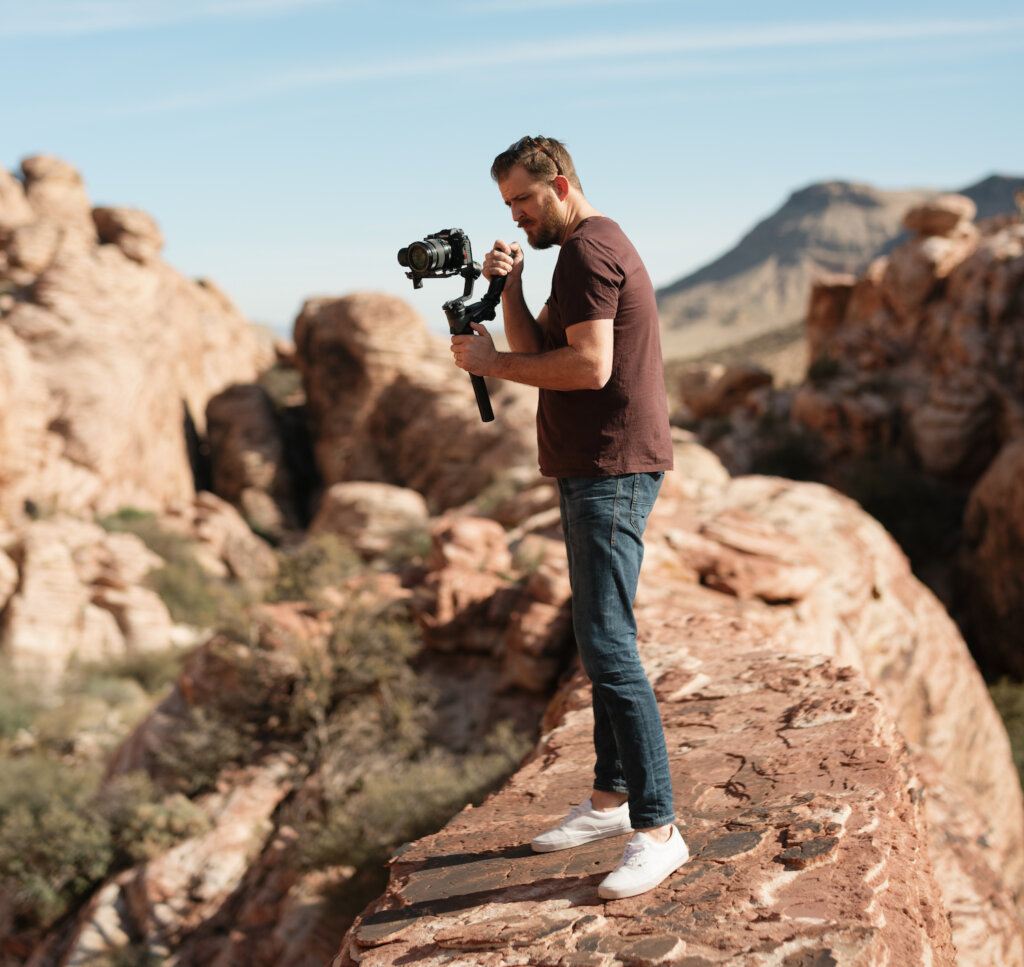
How important is music in your work?
Bobby: Music is the backbone of the story. Almost like the table setting that a meal is served on. Music provides the tone or mood for what you’re about to experience as the viewer. I think about if you walk into a restaurant, and it’s white linen tablecloth, you know you’re in for a fancy meal. If you walk in and it’s red and white checkered plastic, you’re likely having BBQ and you’re going to get a bit messy. There are probably other examples there, but it sets the tone for whatever journey you’re about to go on. Music sets the stage for your film to shine. You know right away with the first few beats the emotional tone of the film, or at least that point in the film. As you journey throughout the film, if it’s done right it should be following the music in a lot of ways. It’s hard to say music is more or less important than the other audio sources or clips within your film. As I said earlier, none of those things can be fully realized without the others. So, to put it simply, music is essential to any wedding film.
Jared: Music makes up around 43% of our work. Without the right song, we’re totally screwed.
Jason: Music is more important to me than the footage. For real…
What advice would you give other filmmakers/creators just starting their careers?
Bobby: With WFS, we give a lot of advice via our podcast, weekly livestreams, tutorials, BTS videos, etc. The number one piece of advice to someone trying to start their career in wedding filmmaking specifically is to be motivated and inspired by other wedding filmmakers in the field, but to put in the work to find your unique voice. That’s something that gets thrown around a lot, but I also think it’s incredibly important. Because at the end of the day, if you are focused on emulating instead of creating, you won’t fulfill this creative itch that very likely exists in you. If you’re pursuing a creative field, the vast majority of the time you’re doing it because you love the craft. Some artists fail because they don’t want to run a business, so maybe that would be my piece of advice. But to focus on the creative side, finding your voice is where you start to scratch that itch and fulfill why you got into a creative field to begin with. It’s something that will always be expanding and changing, but the sooner you can catch a glimpse of that and lean into it, the more fulfilled you will be by the work that you’re creating.
Jared: Execute well. You aren’t Martin Scorsese, at least not yet. Striving for perfection is much more important than being novel.
Jason: If you won’t do it for free, you won’t like it when it pays. Fall in love with the craft before you fall in love with the pay. But also… get paid. A lot.
How do you find the balance between pushing boundaries creatively and delivering what your client wants or audience wants to see?
Bobby: I’m somebody who strongly advocated for pushing boundaries for what a film can look and feel like. And there are plenty of others in this industry who do the same. I think you have to break down the second part of this question. When talking about pushing boundaries creatively versus what your client wants to see, I think that comes down to aligning with the right clients. Something that gets thrown around a lot in the wedding filmmaking world is “your perfect couple” or “your ideal couple,” and not every couple will be that. Just like not every wedding will be a portfolio piece. But the weddings where you get to push the boundaries are usually associated with the clients who put the most trust in you. Again, I think that comes down to client education, showing the type of work that they want you to create, and in turn, getting hired without any limits and with a blank canvas with the only instructions being “make something awesome for us.” When it comes to finding the balance between pushing boundaries and delivering what the audience wants to see, I often think of the audience as your fellow wedding filmmakers. And I think that’s something that people can get caught up in quite often. We do a live stream weekly, where we review people’s films that they submit, so I’ve seen a lot of films. I’ve also created a lot of films over my 17 years in the industry. Getting caught up on what your fellow filmmaker wants to see is a trap that a lot of people fall into. It keeps you from finding your voice. I always think back to if you’re happy creating the films that you want, and your clients are happy, and you’re continuing to get hired for films that you want to create, then it doesn’t matter what the industry thinks. It’s easy to fall into the trap of making something too flashy or jumping on a trend just to please your fellow filmmaker. They’re rarely going to be the person who hires you.
Jared: At this stage in the life of our studio and with the clientele we attract I’ve found it’s all about building your portfolio incrementally. We primarily work in New England which in many ways is still a Puritan, waspy society. We have to create something that someone’s grandma has to enjoy. That being said, if we have an idea and find the right client, we’re always throwing ideas out there to push ourselves creatively. Those are always the fun ones.
Jason: We are running a business, so obviously the client’s wants come first… That being said if you put out into the world a strong creative vision holistically across your brand I find you attract people that just want you to be your best you. Not always… but enough. We also try to look for ways to push the boundaries that people don’t necessarily notice. Things that we love and think are fun in the films that we know the client may not get. Almost like a Trojan horse of weirdness.
What is the most challenging aspect of being a filmmaker/creative?
Bobby: Anybody who runs a small business or is an entrepreneur, knows that there are plenty of highs and lows in the journey. The one that always stands out to me is the fact that I would call this a lonely career. You aren’t in an office with coworkers, and many times even if multiple people are involved in the creations you make, they might only be on the day of the wedding shooting beside you, or digitally over email as you hand off your edits. So, staying engaged in the community can be difficult, and same with building one. That’s what we’ve set up to do with WFS, is to provide a place for others in what can traditionally be a very lonely field. To have a safe space, to bounce ideas off of one another, and to feel that sense of community to overcome that.
Jared: At first I thought the biggest challenge was making money. Now, after having operated a successful studio for almost 15 years I’d say it’s finding ways to stay inspired to create some of the best wedding films in the world. Most wedding filmmakers don’t last long. They quickly realize that commercial work is much more fiscally rewarding and creatively appealing. The struggle for us to stay fresh while also motivating our team to do the same.
Jason: Being good at it…
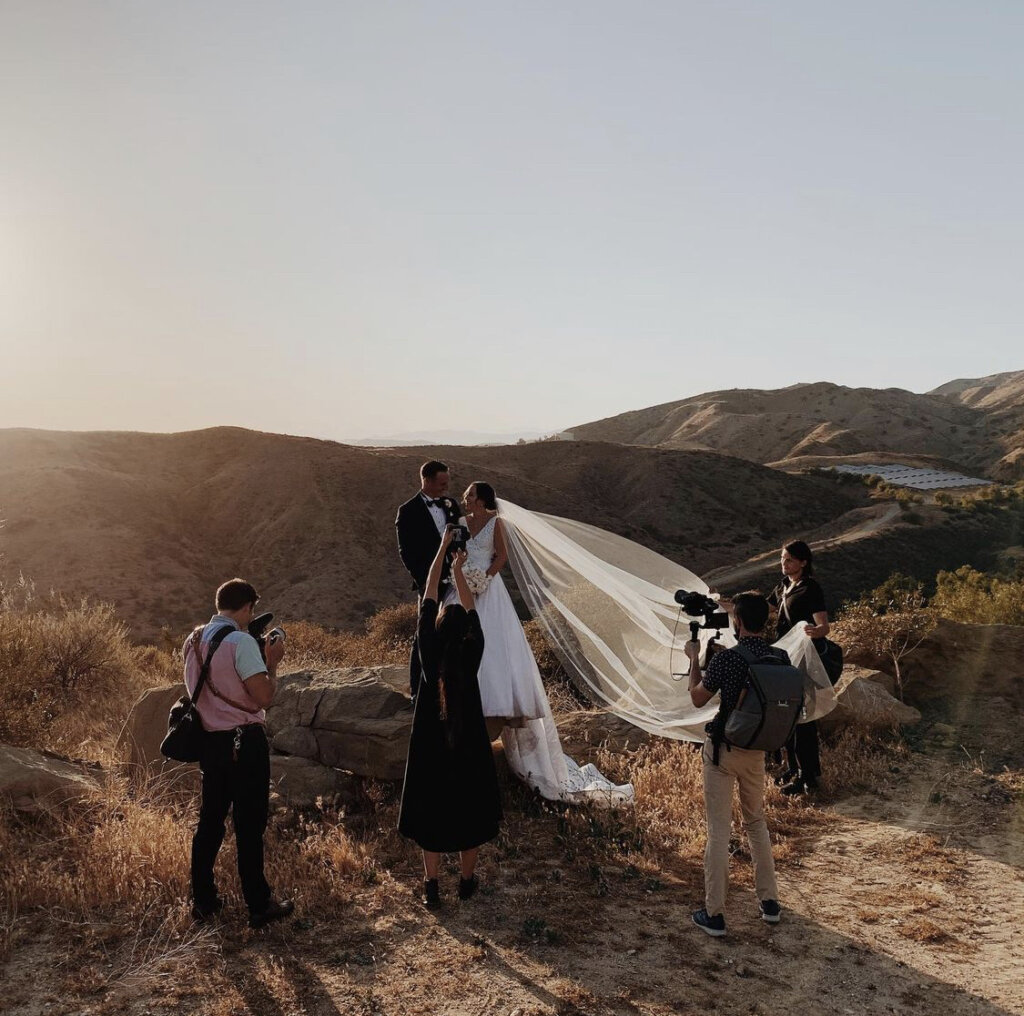
What are some of your favorite projects you’ve worked on?
Bobby: I do plenty of commercial work as well, which I don’t advertise or talk about. The reason I continue to do weddings is because of how grateful I am for the opportunity to do them and the ability to create for my clients. A lot of times in my conversations with a prospective client, I’ll explain to them that I am a business providing a product, but also an artist creating art for my clients. I think that allows me to illustrate the perspective that I’m coming from, which is that I want somebody who trusts me 100% and gives me a blank canvas saying “Make something awesome.” So weddings specifically allow me more freedom to do that, especially at this stage in my career. While I can’t point to a specific wedding, I’ve had some awesome ones all over the globe. Great national park elopements, and plenty of amazing weddings here in Minneapolis where I’m based.
Jared: Any destination work is always fun. Paris, Italy, the Caribbean, etc. I also think that working with like-minded creatives, especially planners can be incredibly rewarding. Wedding filmmakers have traditionally been seen as the ugly stepchild in the wedding and production industry however, this has really shifted in the last couple of years where young planners really see the value in what we do. Frankly, I think that filmmaking is the best creative expression of the worlds that they create. Having planners ask for our advice about lighting, composition, and overall storytelling has been a very welcoming change.
Jason: As a wedding filmmaker it’s hard to choose a favorite but in 2023 I got to create a film with songs from MusicBed blending into a custom arrangement that I composed and played over extracted vocals from a song the bride brothers wrote and performed live at the wedding. It was a very cool combo of two art forms I am passionate about and a super meaningful song to the couple so I’m super proud of that film.
How do you search for music on Musicbed? What are your tips for other filmmakers to search on Musicbed?
Bobby: I would recommend 2 things: WFS has an amazing film on how to find the best music for your wedding films, and I truly believe we dive into things that are much deeper than the surface level that you see in most YouTube videos on this topic. I’d highly recommend watching that. Beyond that, I typically keep a running list of Musicbed songs, and I’ll add to that list when I have downtime, or as I’m searching for a specific song, or if I have to edit something that doesn’t really acquire an ear for audio. I will keep that list, and always reference it, which is super helpful for consolidating the amount of time in finding a song for a film. I love utilizing the various subcategories (for example, searching by key), one of the things we go into in our tutorial is complimentary keys, and that’s been a game changer for me. Being able to search by BPM, mood, genre, instruments, etc. Being able to break down exactly what you’re looking for, and then having Musicbed come up with what is essentially a custom playlist is a lifesaver because finding music can be time-consuming. There are days that I wake up and I’m so amped to edit, I’m excited and I feel creative. There are also days that I wake up and am not excited to edit and many of those days I won’t edit. And that’s a personal choice that I’ve made. But, if I wake up and get to editing, and the first thing that I have to do is find music, and I don’t have a song on my playlist, and I can’t search by key, etc, and I have to just go through random playlists and waste time, not only am I wasting time but I’m also wasting creativity. And then when I get to the edit two hours later, I no longer want to work on that edit that day. And that loses me an entire day which is detrimental. So that’s why I implement and use certain features on Musicbed to speed that up because I want to make the best use of my creative juices when they’re flowing.
Jared: The best way I pick music is by getting lost in the suggested playlist vortex. I typically spend a full day with our lead editor jamming out to songs that we both can agree match the vibe of certain types of events. We’ll create full libraries for our different brands well before the wedding season starts so the search process is abbreviated by the time it comes to searching for songs. It also allows us to share these playlists with picky TikTok clients who want to be more involved in the song-picking process.
Jason: The biggest tip I can give is to watch the video I made on the Wedding Film School YouTube channel about how to pick songs faster on Musicbed. Truthfully though… Most people don’t understand how powerful the attributes and instrument filters are but they require a little bit of musical knowledge to leverage them. Don’t just click Cinematic, Love, and Epic, and then listen to the first page of songs and pick one. Go deeper and get educated on music and how it’s made. Learn the instruments and genres they are utilized in.
Why do you utilize Musicbed in your work?
Bobby: I’ll put it very simply: Musicbed is hands down the best music licensing platform for wedding filmmakers. There is nothing that comes close when you take all variables into account. I have used Musicbed essentially since its conception, and I have never once regretted my decision to do so.
Jared: Musicbed simply has the best selection. It’s really not even a question. Besides that, the vision is right. It feels good supporting other everyday artists just like us who are doing something they love.
Jason: Musicbed is by FAR the best library out there. Additionally… They are very pro-artist which is very important to me as an artist.
—
Explore a curated playlist of Wedding Film School’s go-to songs for their videos—all available to license only on Musicbed.















































































